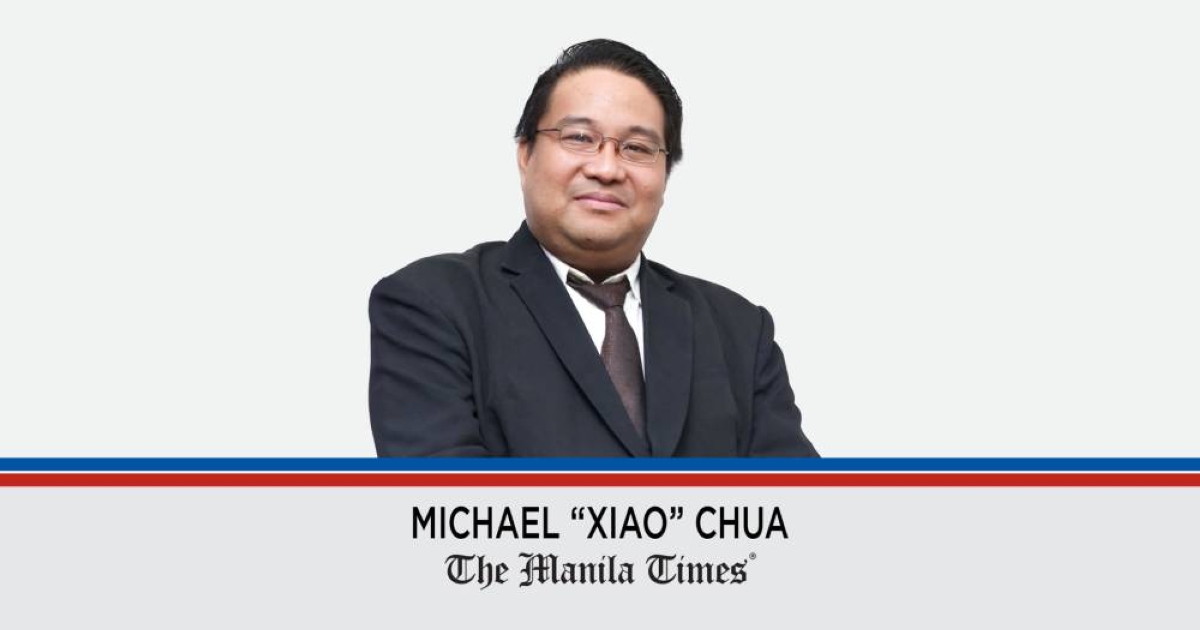
Michael “Xiao” Chua
TODAY, we see women in all sorts of professions, and they especially shine so bright (like a diamond!) in the academic and the teaching profession. It is hard to imagine that a little over 60 years ago, they were still trying to break the glass ceiling.
In 1949, the young Carmen Guerrero Nakpil wrote in The Philippines Herald in December 1949: “The women I have in mind believe in the power of knowledge and of thought, in the force of public opinion, in the democratic vote, in truth, goodness and hard work, and in the perfectibility of the human condition.” She was still imagining things.
Also, what constituted to many people as “Philippine culture” worthy of study in the academe would be those different from many of us living in urban areas: the cultures of people living in the mountains. Anthropologists used to be white men who were fond of studying national minorities and collecting their artifacts, exoticizing them for the perspective of a Western audience, a product of colonialism.
Within the next five years, a young woman by the name of Mary Racelis completed her bachelor’s degree in sociology and anthropology at Cornell University in Ithaca, New York. By the end of the decade, she would have completed her MA in Sociology at the University of the Philippines. At that time in post-war Philippines, the academe was still dominated by the “Big Men.”
One of the potential “Big Man” in academe at the time was an American from New Jersey named Frank Lynch, SJ, who, after finishing his master’s degree in anthropology at UP in 1952, went on to complete his doctorate at the University of Chicago, returning to Ateneo de Manila to champion the study of sociology and anthropology.
One day, Mary offered Father Lynch a ride home. The Jesuit priest had been problematizing about the way cultural studies were done in the country. Isn’t it that the everyday life of 80 percent of lowland Filipinos — Bikolano, Tagalog, Cebuano, Ilocano, Ilonggo, Kapampangan, Pangasinense and the Waray-Waray in rural and urban areas should also be considered “Philippine culture”? During that conversation, they found that they had a similar belief: that the inquiry into society should begin by asking the ordinary person about their everyday life to get to know what constitutes Filipino identity. Even if many times, we also change our views about it and how we live it. The priest told her about his plan to create an institution that would research our society using sociology and anthropology to promote equality and social change.
As he was getting out of the car, Lynch asked Mary, “Would you be interested in joining me?”
Since she said yes, the Institute of Philippine Culture (IPC) and the Department of Sociology and Anthropology (DSA) were established, and she became one of their first staff members. The IPC became the pioneer in ethical research practices, such as paying its researchers, getting informed consent, and bringing back their studies to stakeholders.
Mary also became the first female faculty member of the Ateneo de Manila University!
Who would have thought that after almost five decades, I would meet this historic figure in Philippine academia through another anthropologist, my first history teacher in college, Prof. Carlos P. Tatel Jr. (later PhD), on Feb. 2, 2007. She was lecturing at the UP Department of Anthropology and and I was at that time taking my master’s and teaching at the UP Department of History.
In the years before this, she was involved in a polemic with UP social scientists, which was dubbed the “Values Debate,” in which the scholars from the other side of Diliman attacked her notions of “utang na loob,” a story that can be told some other time. But that was all water under the bridge by this point.
Still, never in my wildest dreams did I imagine that a few years later, when I began my twelve-year-journey in getting my doctorate in anthropology from UP, she would become one of my very first teachers during the first semester of 2011-2012.
Through her courses, she advocated for the marginalized through urban anthropology. She just did not teach it; she was what we call an “engaged anthropologist.” By that time, she was involved with urban poor organizing through the Urban Poor Associates and was championing the voice of marginalized poor women advocating for contraception in a Catholic university during the heated debate on the Reproductive Health bill. She also used the mass media to engage people and weigh in on the debate through her commentaries in the Philippine Daily Inquirer as a public intellectual.
Sixty years after she broke the glass ceiling, she still helps other women reach a more equitable society for them by advocating their perspective.
More of what I learned from her in a future column.
News Related-
Recall Just Announced For Popular Cookies Featured In Holiday Gift Baskets
-
Eagles rally past Bills in overtime as Chiefs win
-
Reality bites the green energy agenda
-
Sandigan orders Marcos Sr. pal to pay workers
-
DSWD: Shear line, LPA affect 1.2 million people; over 18,000 families evacuated
-
The mayor of Paris is making a loud exit from X, calling the platform a 'gigantic global sewer'
-
Rain showers, thunderstorms over Luzon, including Metro Manila — Pagasa
-
'Naruto' live-action film adaptation is in the works
-
NASA Highlights Stingray Nebula
-
Manila's Lagusnilad underpass opens
-
China probes debt-ridden financial giant
-
China's VUCA situation
-
Unraveling the mystery that is diabetes
-
Bangladesh's nuke plant is not going to steal PH investments
